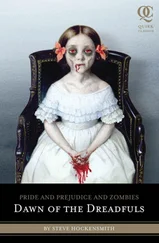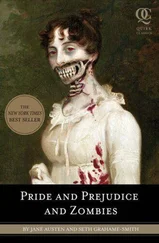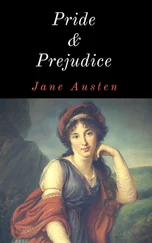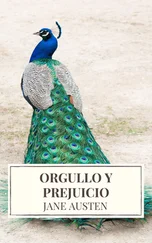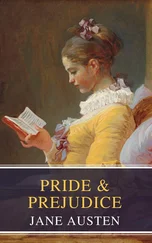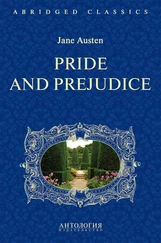Jane Austin - Pride and Prejudice
Здесь есть возможность читать онлайн «Jane Austin - Pride and Prejudice» — ознакомительный отрывок электронной книги совершенно бесплатно, а после прочтения отрывка купить полную версию. В некоторых случаях можно слушать аудио, скачать через торрент в формате fb2 и присутствует краткое содержание. Жанр: unrecognised, на немецком языке. Описание произведения, (предисловие) а так же отзывы посетителей доступны на портале библиотеки ЛибКат.
- Название:Pride and Prejudice
- Автор:
- Жанр:
- Год:неизвестен
- ISBN:нет данных
- Рейтинг книги:3 / 5. Голосов: 1
-
Избранное:Добавить в избранное
- Отзывы:
-
Ваша оценка:
- 60
- 1
- 2
- 3
- 4
- 5
Pride and Prejudice: краткое содержание, описание и аннотация
Предлагаем к чтению аннотацию, описание, краткое содержание или предисловие (зависит от того, что написал сам автор книги «Pride and Prejudice»). Если вы не нашли необходимую информацию о книге — напишите в комментариях, мы постараемся отыскать её.
Pride and Prejudice — читать онлайн ознакомительный отрывок
Ниже представлен текст книги, разбитый по страницам. Система сохранения места последней прочитанной страницы, позволяет с удобством читать онлайн бесплатно книгу «Pride and Prejudice», без необходимости каждый раз заново искать на чём Вы остановились. Поставьте закладку, и сможете в любой момент перейти на страницу, на которой закончили чтение.
Интервал:
Закладка:
Till the next morning, however, she was not aware of all the
felicity of her contrivance. Breakfast was scarcely over when a
servant from Netherfield brought the following note for
Elizabeth:
“MY DEAREST LIZZY,—
“I find myself very unwell this morning, which, I suppose, is to
be imputed to my getting wet through yesterday. My kind friends
will not hear of my returning till I am better. They insist also
on my seeing Mr. Jones—therefore do not be alarmed if you should
hear of his having been to me—and, excepting a sore throat and
headache, there is not much the matter with me.—Yours, etc.”
“Well, my dear,” said Mr. Bennet, when Elizabeth had read the
note aloud, “if your daughter should have a dangerous fit of
illness—if she should die, it would be a comfort to know that it
was all in pursuit of Mr. Bingley, and under your orders.”
“Oh! I am not afraid of her dying. People do not die of little
trifling colds. She will be taken good care of. As long as she
stays there, it is all very well. I would go and see her if I
could have the carriage.”
Elizabeth, feeling really anxious, was determined to go to her,
though the carriage was not to be had; and as she was no
horsewoman, walking was her only alternative. She declared her
resolution.
“How can you be so silly,” cried her mother, “as to think of such
a thing, in all this dirt! You will not be fit to be seen when
you get there.”
“I shall be very fit to see Jane—which is all I want.”
“Is this a hint to me, Lizzy,” said her father, “to send for the
horses?”
“No, indeed, I do not wish to avoid the walk. The distance is
nothing when one has a motive; only three miles. I shall be back
by dinner.”
“I admire the activity of your benevolence,” observed Mary, “but
every impulse of feeling should be guided by reason; and, in my
opinion, exertion should always be in proportion to what is
required.”
“We will go as far as Meryton with you,” said Catherine and
Lydia. Elizabeth accepted their company, and the three young
ladies set off together.
“If we make haste,” said Lydia, as they walked along, “perhaps we
may see something of Captain Carter before he goes.”
In Meryton they parted; the two youngest repaired to the lodgings
of one of the officers’ wives, and Elizabeth continued her walk
alone, crossing field after field at a quick pace, jumping over
stiles and springing over puddles with impatient activity, and
finding herself at last within view of the house, with weary
ankles, dirty stockings, and a face glowing with the warmth of
exercise.
She was shown into the breakfast-parlour, where all but Jane were
assembled, and where her appearance created a great deal of
surprise. That she should have walked three miles so early in the
day, in such dirty weather, and by herself, was almost incredible
to Mrs. Hurst and Miss Bingley; and Elizabeth was convinced that
they held her in contempt for it. She was received, however, very
politely by them; and in their brother’s manners there was
something better than politeness; there was good humour and
kindness. Mr. Darcy said very little, and Mr. Hurst nothing at
all. The former was divided between admiration of the brilliancy
which exercise had given to her complexion, and doubt as to the
occasion’s justifying her coming so far alone. The latter was
thinking only of his breakfast.
Her enquiries after her sister were not very favourably answered.
Miss Bennet had slept ill, and though up, was very feverish, and
not well enough to leave her room. Elizabeth was glad to be taken
to her immediately; and Jane, who had only been withheld by the
fear of giving alarm or inconvenience from expressing in her note
how much she longed for such a visit, was delighted at her
entrance. She was not equal, however, to much conversation, and
when Miss Bingley left them together, could attempt little
besides expressions of gratitude for the extraordinary kindness
she was treated with. Elizabeth silently attended her.
When breakfast was over they were joined by the sisters; and
Elizabeth began to like them herself, when she saw how much
affection and solicitude they showed for Jane. The apothecary
came, and having examined his patient, said, as might be
supposed, that she had caught a violent cold, and that they must
endeavour to get the better of it; advised her to return to bed,
and promised her some draughts. The advice was followed readily,
for the feverish symptoms increased, and her head ached acutely.
Elizabeth did not quit her room for a moment; nor were the other
ladies often absent; the gentlemen being out, they had, in fact,
nothing to do elsewhere.
When the clock struck three, Elizabeth felt that she must go, and
very unwillingly said so. Miss Bingley offered her the carriage,
and she only wanted a little pressing to accept it, when Jane
testified such concern in parting with her, that Miss Bingley was
obliged to convert the offer of the chaise to an invitation to
remain at Netherfield for the present. Elizabeth most thankfully
consented, and a servant was dispatched to Longbourn to acquaint
the family with her stay and bring back a supply of clothes.
Chapter 8
At five o’clock the two ladies retired to dress, and at half-past
six Elizabeth was summoned to dinner. To the civil enquiries
which then poured in, and amongst which she had the pleasure of
distinguishing the much superior solicitude of Mr. Bingley’s, she
could not make a very favourable answer. Jane was by no means
better. The sisters, on hearing this, repeated three or four
times how much they were grieved, how shocking it was to have a
bad cold, and how excessively they disliked being ill themselves;
and then thought no more of the matter: and their indifference
towards Jane when not immediately before them restored Elizabeth
to the enjoyment of all her former dislike.
Their brother, indeed, was the only one of the party whom she
could regard with any complacency. His anxiety for Jane was
evident, and his attentions to herself most pleasing, and they
prevented her feeling herself so much an intruder as she believed
she was considered by the others. She had very little notice from
any but him. Miss Bingley was engrossed by Mr. Darcy, her sister
scarcely less so; and as for Mr. Hurst, by whom Elizabeth sat, he
was an indolent man, who lived only to eat, drink, and play at
cards; who, when he found her to prefer a plain dish to a ragout,
had nothing to say to her.
When dinner was over, she returned directly to Jane, and Miss
Bingley began abusing her as soon as she was out of the room. Her
manners were pronounced to be very bad indeed, a mixture of pride
and impertinence; she had no conversation, no style, no beauty.
Mrs. Hurst thought the same, and added:
“She has nothing, in short, to recommend her, but being an
excellent walker. I shall never forget her appearance this
morning. She really looked almost wild.”
“She did, indeed, Louisa. I could hardly keep my countenance.
Very nonsensical to come at all! Why must _she_ be scampering
about the country, because her sister had a cold? Her hair, so
untidy, so blowsy!”
“Yes, and her petticoat; I hope you saw her petticoat, six inches
Читать дальшеИнтервал:
Закладка:
Похожие книги на «Pride and Prejudice»
Представляем Вашему вниманию похожие книги на «Pride and Prejudice» списком для выбора. Мы отобрали схожую по названию и смыслу литературу в надежде предоставить читателям больше вариантов отыскать новые, интересные, ещё непрочитанные произведения.
Обсуждение, отзывы о книге «Pride and Prejudice» и просто собственные мнения читателей. Оставьте ваши комментарии, напишите, что Вы думаете о произведении, его смысле или главных героях. Укажите что конкретно понравилось, а что нет, и почему Вы так считаете.


